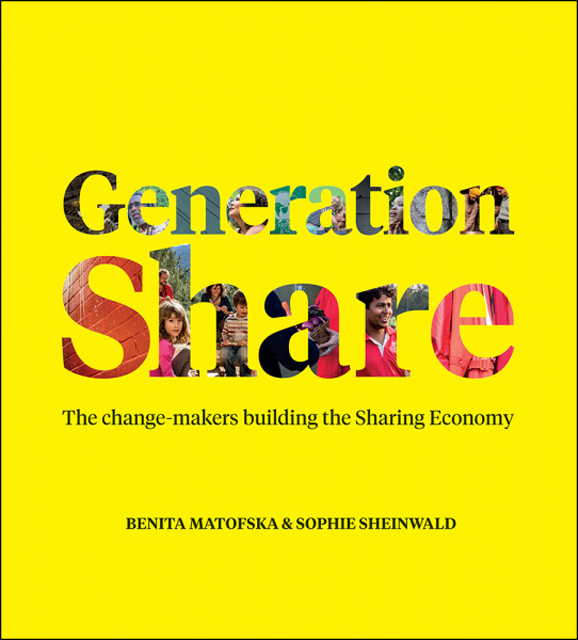Book contents
- Frontmatter
- Dedication
- Miscellaneous Frontmatter
- Contents
- Our Sponsor
- What Is The Sharing Economy?
- Does Age Matter?
- Sharing By Gender
- Sharing The City
- Sharing The Countryside
- Sharing The Money
- Is Sharing Cultural?
- Sharing And Disability
- The Geography Of Sharing
- Conclusion
- Notes
- Generation Share demonstrates the power of Sharing. The change-makers show just what’s possible – now it’s your turn. What can you share? How can you make a difference?
Sharing By Gender
Published online by Cambridge University Press: 14 October 2022
- Frontmatter
- Dedication
- Miscellaneous Frontmatter
- Contents
- Our Sponsor
- What Is The Sharing Economy?
- Does Age Matter?
- Sharing By Gender
- Sharing The City
- Sharing The Countryside
- Sharing The Money
- Is Sharing Cultural?
- Sharing And Disability
- The Geography Of Sharing
- Conclusion
- Notes
- Generation Share demonstrates the power of Sharing. The change-makers show just what’s possible – now it’s your turn. What can you share? How can you make a difference?
Summary
In 2017, Canada issued the world’s first health card for a baby that does not state the child’s sex. Requested by non-binary, transgender parent, Kori Doty, who identifies as neither male nor female, the British Columbian ID carries a ‘U’ in the box where a child’s sex is ‘normally’ specified. But when it comes to gender and our interpretation of it today, what exactly is ‘normal’? Yes, gender is certainly the topic of the decade. The sheer mention of the word that originated from the Old French ‘gendre’ or ‘type’ and the Latin ‘genus’ meaning ‘birth, family or nation’ is likely to ignite multifarious opinions, wherever and whenever it is raised. We are living in an era of economic, social and environmental flux, witnessing an increased societal consciousness of the need for justice, fairness and the rejection of previously accepted norms. Sharing is at the heart of these shifts and is not just about tangible asset sharing, but offers a redefinition of ‘other’, a sharing of power and an understanding that what has previously dominated won’t do so for much longer.
2018 marked 100 years since women in the UK first got the vote, yet we are still subjected to sexism, violence and are vastly underrepresented in the political realm worldwide. The unacceptable statistics speak for themselves – each minute, 28 girls are married before they are ready and up to 35% of women today have experienced sexual or physical violence. The gender pay gap knows no borders; whether you’re a farmer in Nigeria, or Jennifer Lawrence in Hollywood, it’s likely you’ll only be paid two-thirds as much as your male equivalent.
But something is shifting. From #MeToo to the Time’s Up campaign,53 women have had enough. We’re witnessing the emergence of a Sharing system based on fairness, mutual respect and caring. Often cited as a strong attribute of femininity, though some would say that is a stereotype too, sharing is indissolubly linked with caring, a quality that is being applied to create new systems that empower all genders rather than maintain the patriarchal status quo. In the past five years, we’ve seen a proliferation of initiatives enabling women to share everything from cars to cash.
- Type
- Chapter
- Information
- Generation ShareThe Change-Makers Building the Sharing Economy, pp. 89 - 118Publisher: Bristol University PressFirst published in: 2022



